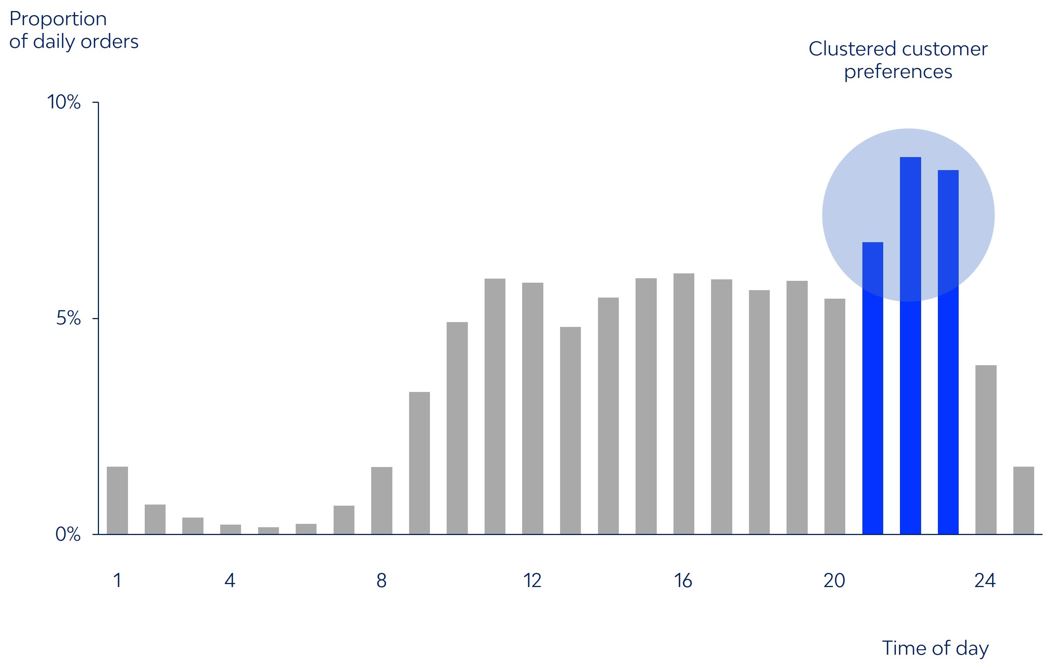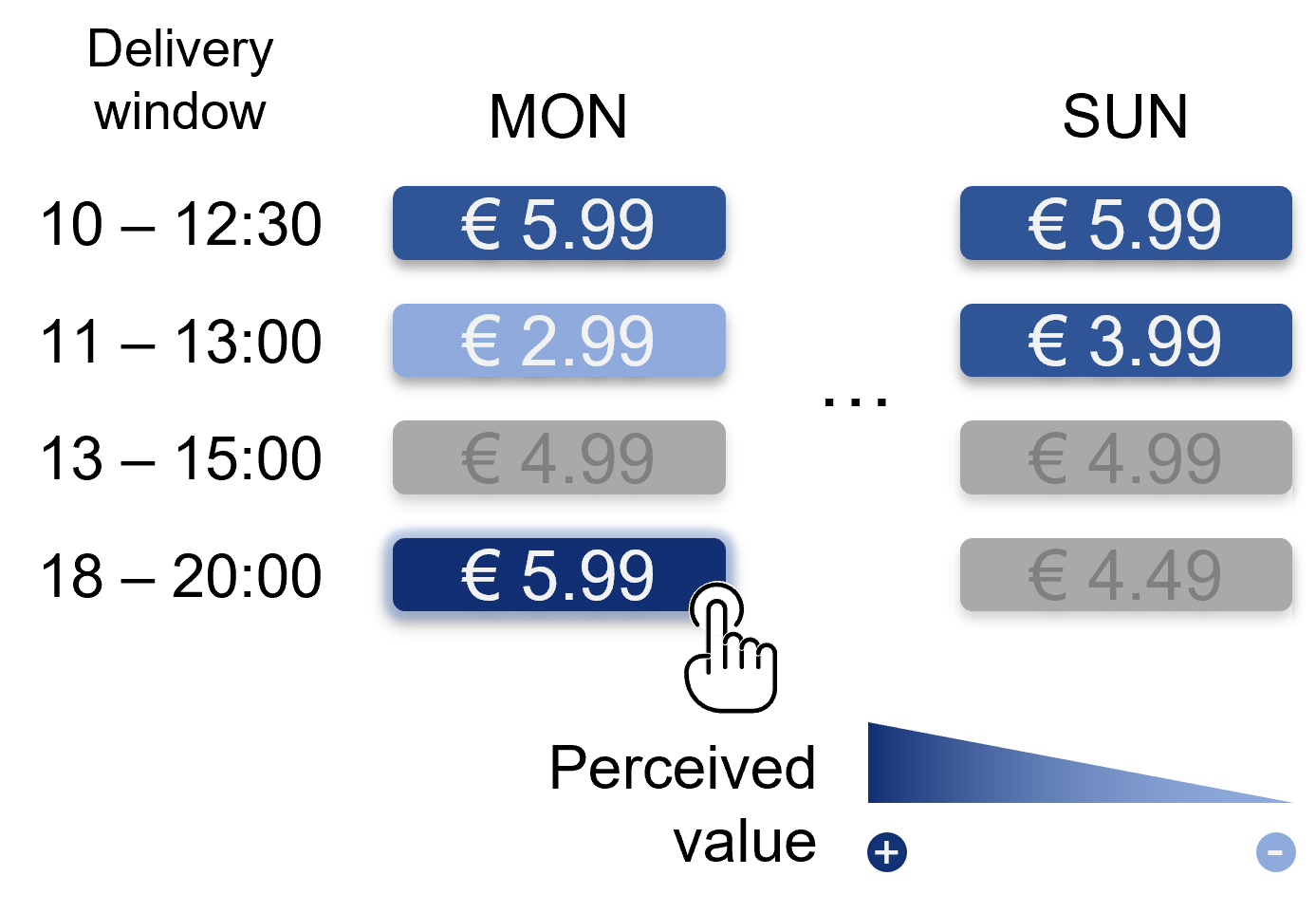
Motivation
Time Slot Selection in e-commerce is the proof of concept of TRUST’s
effectiveness in a prescriptive setting within the retail sector,
bringing together INESC TEC, LTPlabs, and SONAE MC. Sonae MC is the
largest Portuguese food retailer and has an e-commerce operation
that, similarly to other retailers, has been boosted by the COVID
pandemic. It is, thus, of the utmost importance to achieve
operational efficiency without disregarding customer satisfaction.
The current operational inefficiencies in the e-commerce operation
come mainly from customers’ preferences, which are clustered around
the same delivery window, causing high operational loads. These
operational peaks require an oversized operational capacity and
result in a below-target service level. The misaligned customer
preferences and supply chain objectives call for a solution
compromise.

Challenge
Time slot management includes defining the available slots (time
windows) that customers may pick for the delivery of their order and
the pricing of each slot. Time slot selection may pursue a static
approach, where slots and pricing decisions are defined beforehand
and do not change during the operation; or dynamically, where the
decisions are adjusted based on real-time orders, taking into
consideration the current operational load of each time slot and the
customers’ geographic proximity. Pricing decisions can also take
advantage of customers’ preferences.
The objective of this use case is to apply TRUST to dynamically
select delivery time slots and corresponding pricing for last-mile
delivery, preserving customer satisfaction while increasing the
operational margins and efficiency. Providing explanations to the
prescriptive engine’s output is key in ensuring customers are
handled fairly and decision-makers fully adopt the data-driven
recommendations.

Approach
In this project, a symbolic expression will score elligible time slot panels, based on variables such as customer preference, location, among others, where the highest scoring panel will be the chosen, tailored panel to be presented to each customer. To train this symbolic expression, genetic programming will be used, where expressions that generate the most profit during a simulation of real past orders are deemed the fittest.
This symbolic expression, combined with experts’ knowledge, increases the comprehension of the dynamic pricing problem. TRUST will enable two types of interactions: At the solution level, by easing cognition while interpreting a particular solution, and at the model level, by trading-off different factors such as performance, explainability, and fairness and favor one or another, depending on the circumstances.
Results
A prescriptive, genetic programming-based methodology within the TRUST-AI framework has been successfully implemented, which dynamically sets time slot prices via a symbolic expression. This approach has enabled iterative learning loops which incorporate human expertise into the generation of the expressions. These advancements demonstrate the successful integration and practical application of the above mentioned methodology in an online retail context.

